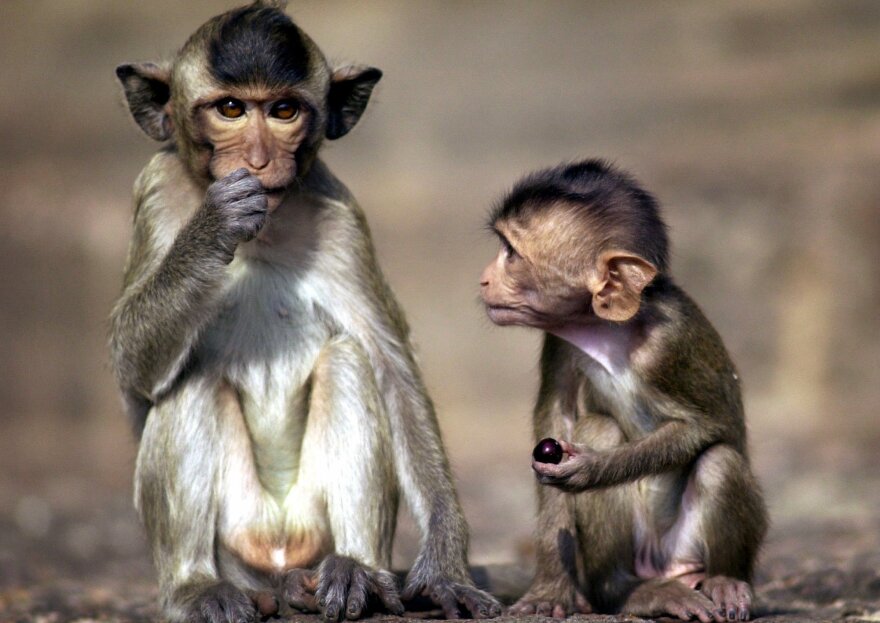A remote island in the western Pacific has been inhabited by invasive monkeys for more than a century. Now, the U.S. military is clearing land and pushing them to the south, where they are causing new issues for the island's remaining human residents.
Angaur is a remote island just 2.5 miles long at the southern tip of Palau. The northern part is littered with unexploded bombs from a World War II battle between U.S. and Japanese forces in 1944.
Although the island has kept people out, it has created a refuge for long-tailed macaque monkeys.
With no natural predators, their numbers have multiplied to 5,000, greatly outnumbering the island's 114 residents.
Germany colonized Palau in 1899 and began mining phosphate near Angaur. Monkeys were introduced from Indonesia and used to detect toxic gas.
The U.S. military has maintained a presence there since World War II, and now it's building a radar facility.
Under the Compact of Free Association, Palau grants the U.S. exclusive military access to its land, air space and sea. In return, the U.S. provides defense and economic aid. But the radar project has come at a cost.
Australia's ABC News reports efforts to control the monkey population have failed, from trapping to feeding them birth control, even using bounties for their capture.
Palau has now appealed to Germany for help. A government official said it was confronting its colonial legacy, including dealing with Pacific Island countries. But there was no mention of the monkeys.




